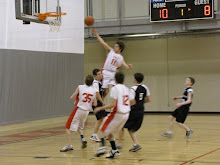In the video Dr. Patrick Cohn talks about how to play golf to ones best abilities. This can be done by having no target score, because when you tell yourself a target score, you have sub-conciously told yourself that's what you have to shot, but if you start doing better you'll choke, not all the time but a majority of the time you will. Also, if you do worse than you want you will become angry and keep piling on strokes. Dr. Cohn also says don't keep score, that bogs down your mental game with how many over or under you are instead of being in the moment: "You can't keep track of your score each and every hole, in your head or even on a scorecard." Cohn also says that no matter how good you're playing always stay on the offensive and never get to where you're trying to stay at one spot, it doesn't work. Finally Dr. Cohn tells one to stay focused on his or her target. Because if your not focused on it you won't always hit it there.
Unlike Dr. Cohn I like to set a target score just because in school golf one needs to shoot low in order to help out his team. So that's why I like them. That also makes it hard to not keep track of my score because in a tournament you have to tell the person who is keeping your score what you had the previous hole. When playing I will admit I do get defensive with my score just because even though I've played for four years I'm still inexperienced and I will try to get comfortable with one under thru six holes and go on to shoot a 79, that's eight over at our home course. Lastly I also have a problem with staying focused on the target, mainly because I let the opaque cloud of anger get in front of me. Normally that's why I post not-so-great scores for the school tournaments. But I digress, I personally don't follow what Dr. Cohn has to say, but I can see how what he is saying can be beneficiary to one's game.



